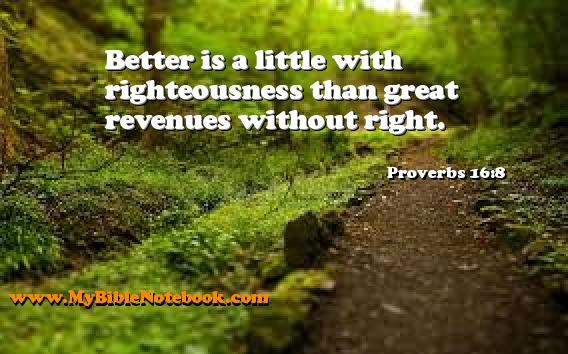
KJV: Better is a little with righteousness than great revenues without right.
ASV: Better is a little with righteousness than great revenues without right.
Matthew Henry Commentary
8 Better is a little with righteousness than great revenues without right.
Here, 1. It is supposed that an honest good man may have but a little of the wealth of this world (all the righteous are not rich),--that a man may have but little, and yet may be honest (though poverty is a temptation to dishonesty, Pr 30:9, yet not an invincible one),--and that a man may grow rich, for a while, by fraud and oppression, may have great revenues, and those got and kept without right, may have no good title to them nor make any good use of them. 2. It is maintained that a small estate, honestly come by, which a man is content with, enjoys comfortably, serves God with cheerfully, and puts to a right use, is much better and more valuable than a great estate ill-got, and then ill-kept or ill-spent. It carries with it more inward satisfaction, a better reputation with all that are wise and good; it will last longer, and will turn to a better account in the great day, when men will be judged, not according to what they had, but what they did.


 to share on Pinterest!
to share on Pinterest!